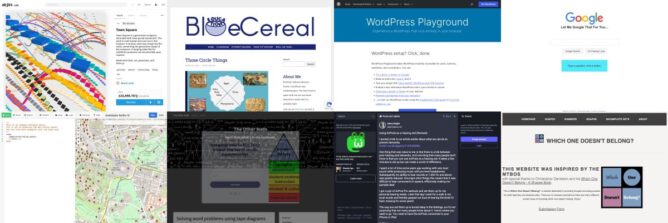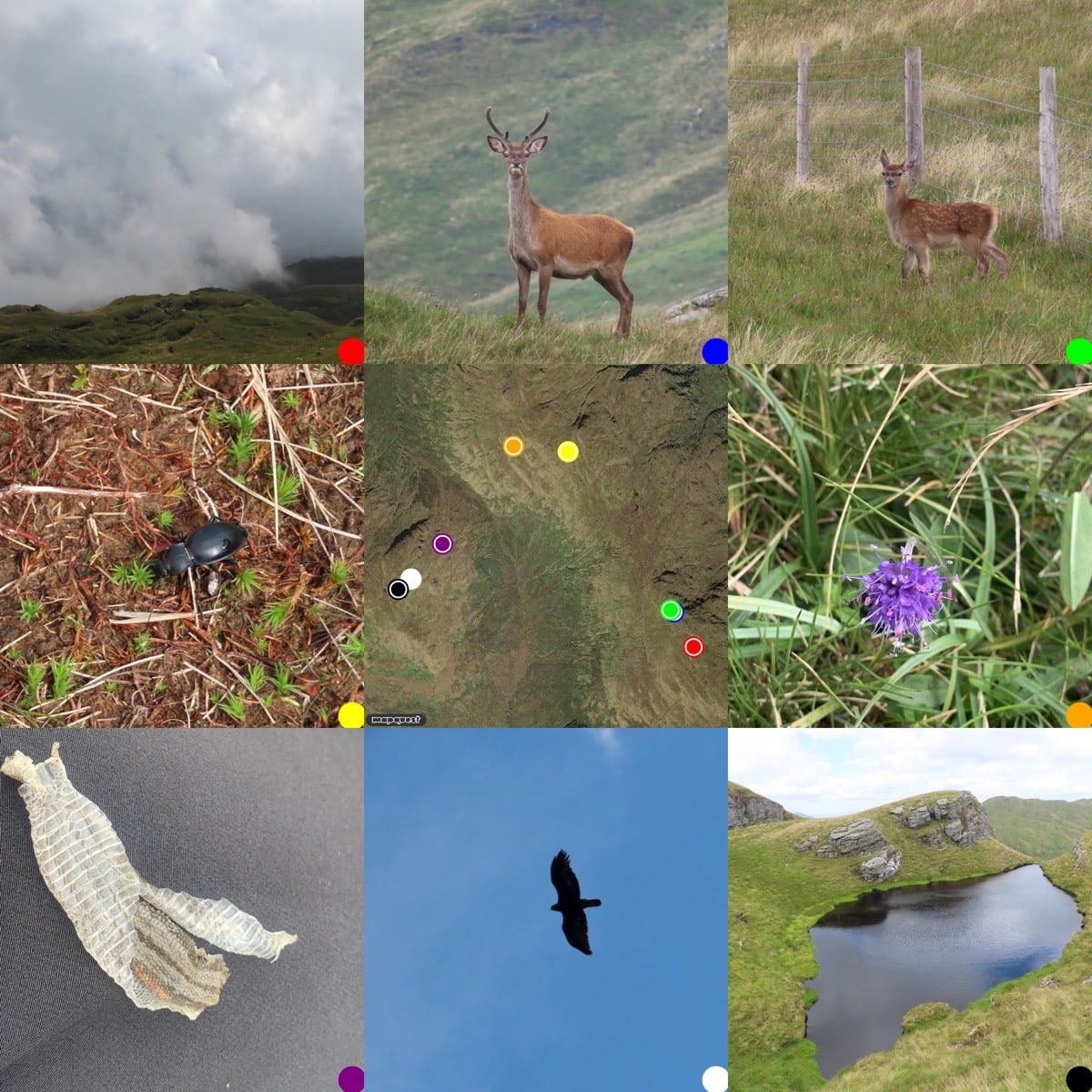
Had a short walk around the braes, heather very purple, few butterflies around, and a couple of big dark blue dragonflies.


The hour approaches…
This is Which One Doesn’t Belong?, a website dedicated to providing thought-provoking puzzles for math teachers and students alike. There are no answers provided as there are many different, correct ways of choosing which one doesn’t belong. Enjoy!
Tape diagrams are especially useful for modeling addition, subtraction, multiplication, division, fractions, and ratios/proportions.might work in wel lwith Number Talks, or be a break from them.
You probably figured out pretty quickly that there’s usually more than one solution to which one doesn’t fit and why. These aren’t multiple choice questions with one objectively “correct” answer. It’s the process of examining each item in comparison with the others that forces us to review what we already know, reinforces the information we use to argue whatever point we choose to make as a result, stretches our understanding of each item a bit, and lays the groundwork for actual analysis and argument should we eventually go there.
“…a web-based data filtering tool for OpenStreetMap”
HT Joe. I really like Open Street Map, this makes me like it more.
Experience a WordPress that runs entirely in your browser.
…WordPress Playground makes WordPress instantly accessible for users, learners, extenders, and contributors.
And
Even more insane and amazing, Ella van Durpe used WordPress Playground as the basis for a new note-taking app for iOS and macOS. Blocknotes is a stripped down version of WordPress that lets you create notes like you would create posts in WordPress.
Town Square is a generative sculpture, animated with slow-paced movement. The work is code-based and runs live in the browser. A random seed was chosen by the artist, cementing the generative shape of the sculpture. A looping video file for exhibition purposes can be provided upon request. Made with html, css, javascript, and three.js. Creator Anna Lucia
I am often impressed with various html/css/javascript art ideas, this is a lovely one. I’ve occasionally taken baby steps, usually in response to the Daily Create.

Linlithgow Palace Fountain Detail, I am not sure if this is a lion or sun man face? More snaps on flickr.
Read: Antarctica by Claire Keegan ★★★★☆ 📚
After reading Small Things Like These and watching Foster I was surprised at some of the more dramatic turns and unpleasantness in some of these stories. They have a similar quiet, clarity & almost terseness.
Read: I’m Sorry You Feel That Way by Rebecca Wait ★★★★☆ 📚
dysfunctional family story, that was in turn rather funny and quite serious. I enjoyed the fun and though the description of psychosis was good.

I had a walk around Glen Douglas yesterday. Lots to see, more on the walkmap Missing from the photos are lots of Scotch Argus butterflies who did not stand still.
Replied to Replied to Behind a login on LinkedIn
For the last several years it has increasingly worried me that schools (governments & others institutions) used Twitter as their main publishing system. A system not designed for users but for advertisers and owners and more evidently recently their owner’s unsavoury ideas. We seem in some instances to be encouraging pupils to look at services they are legally too young for.
My use of Twitter dwindled and as far as possible I used it as a distribution system for content I own. I now hardly bother with that.
The decline of Instagram from a timeline based service to an advert filled algorithmic stream doesn’t fill me with confidence for threads. Similarly LinkedIn and other silos.
What all these systems bring is ease of use and this bring piles of pals. The onboarding to threads was almost invisible.
Unfortunately the ethically cleaner alternatives like mastodon or a combination of RSS & blogs have more friction. So far they have not had the huge influx of users that allows folk to build up a pile of pals. It would be useful, I think for someone to start an instance on mastodon for say Scot’s educators and then do some propaganda to get folk from twitter to move over.
I also really rate the micro.blog approach, which could be used as a model for educators.
I’ve PESOSed this post here.
This: Bob:Marley’s ‘War’ performed by Sinéad o’Connor! – YouTube
Then this:
Sinead O’Connor: ‘War’ live at the Bob Dylan Tribute. – YouTube
The second is as brave a performance as could be.